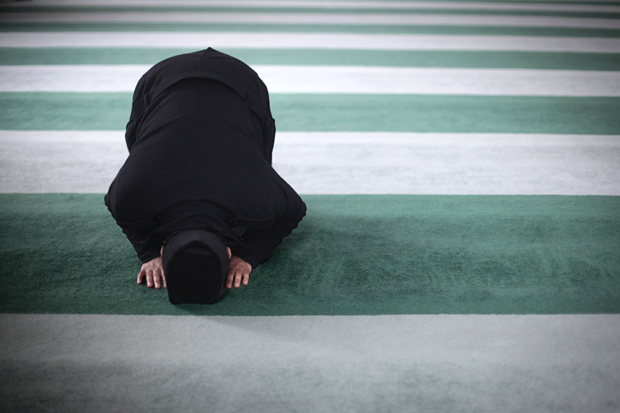The Prime Minister Malcolm Turnbull is in danger of helping to entrench the already rampant denial in Islamic communities with his gentle, conciliatory style. While it has won plaudits from many circles, including Muslim community leaders, there is a danger it will embolden those within the community and their supporters in politics who are in the habit of externalising all blame.
A key danger is allowing the discussion to veer away from the fundamentals of religious discourse within Islam. There is no question that terrorism’s origins have deep social foundations, in particular the building of cultural fortresses within some Islamic households in an attempt to ward of the perceived evils of Western social freedoms in combination with a parenting style that struggles to set firm boundaries with adolescent boys. This then amplifies the identity confusion already apparent amongst adolescents when faced with a mainstream Australia and different value systems.
But when this has been identified by community leaders such as Dr Jamal Rifi as critical, instead of the apparent scourge of Islamophobia, he has been widely condemned as an Uncle Tom pandering to his alleged white masters.
There have also been multiple attempts to dismiss the overlaps with religion because the perpetrator in the most recent case was a teenager. But anyone working with adolescents knows children are canaries in the mine and reflect conflicts and trends among their parents and peer group.
In an interview to the ABC Lateline program last week, terrorism expert Husain Khadim stated that religion did not have much to do with radicalisation, right before stating how beliefs such as re-establishing the Caliphate, the justified killing of non Muslims and the primacy of a supra-national Muslim identity, all ideas directly derived from Islam, were key factors in the beliefs underpinning terrorist acts. When pressed about this in a phone interview, he said he agreed Islamic ideas were a fundamental part of radicalisation but that when he and many other experts used the term religion they referred to institutions such as mosques or prayer groups having little to do with the process.
So when our leaders tiptoe around using the world Islam in reference to terrorist attacks, they are really using weasel words and perhaps even using the term religion in Western terms, given Islam by its nature sees itself as a complete system incorporating politics, theology and social life. The process of radicalisation does tend to occur through secular institutions, be it the internet, school halls or jails, but lets not deny its fundamental basis has a strong overlap with ideas that come only from Islam.
The comically named Grand Mufti of Australia publicly refused to suggest the killer’s motives may have been tied to terrorism and instead condemned internet influences he called Sheikh Google and Imam Twitter.
But what about influential clerics such as Sheikh Al Qaradawi in Egypt, a voice that booms out to millions through his regular presence on Al Jazeera Arabic, who has called on Muslims of fighting age to travel to Syria. This can hardly be dismissed as a fringe thread of Islam only promoted through internet memes.
Likewise, we should be wary of other clerics who take the opportunity to curry favour with the public but behind closed doors preach views that have great parallels with what we term extremism. The chairman of the Parramatta mosque linked to the shooting, Neil El-Kadomi, told the Fairfax press that people should leave Australia if they didn’t like it. While he may have been lauded for such a pronunciation, they may have been less effusive if they knew that for decades Kadomi’s sermons have been filled with his own story of Palestinian victimhood, Jewish conspiracy theories and the chiding of other ethnic groups for not following Islam in an Arab purity. I know because I have attended the mosque on Islamic holidays. Several years ago he lambasted the primarily South Asian congregation for wearing saris, which he deemed to be unIslamic. A handful of people walked out in anger.
A big problem within the Islamic community is a widespread view that as long as you are not promoting violence, the ideas you are espousing have nothing to do with terrorism. Terrorist acts can then repeatedly be dismissed as having nothing to do with the community or Islam.
The reality is that one can hold extremist views just short of advocating violence and swim comfortably in Muslim social life. You rarely see Muslims protesting against Hizb-ut-Tahrir, despite them having the most to lose in the group’s prominence.
Australia is lucky in some respects that the vast majority of terrorism perpetrators are from refugee derived groups, usually Lebanese, Iraqi or Afghan. This is not necessarily the trend internationally. For example the infamous Jihadi John, the voice of many Isis videos, was trained as a computer scientist. The absence of children from skilled migrant groups suggests any sense of grievance rapidly dissolves once people move up the social and economic ladder.
To the credit of academic Husain Khadim, who has worked around the world, he went on to identify that parents and families were at the root of the radicalisation process.
He also said Australia had one of the most defensive Muslim communities in the Western world which was obsessed with an overstated fear of Islamophobia. This is quite a statement coming from someone who has lived and worked in Britain, where multiple surveys among Muslims have found extremist ideas are mainstream.
Turnbull’s hope is that his softly, softly approach will help prick this defensiveness. He may be unpleasantly surprised when he finds it only entrenches it further.
Got something to add? Join the discussion and comment below.
You might disagree with half of it, but you’ll enjoy reading all of it. Try your first month for free, then just $2 a week for the remainder of your first year.









